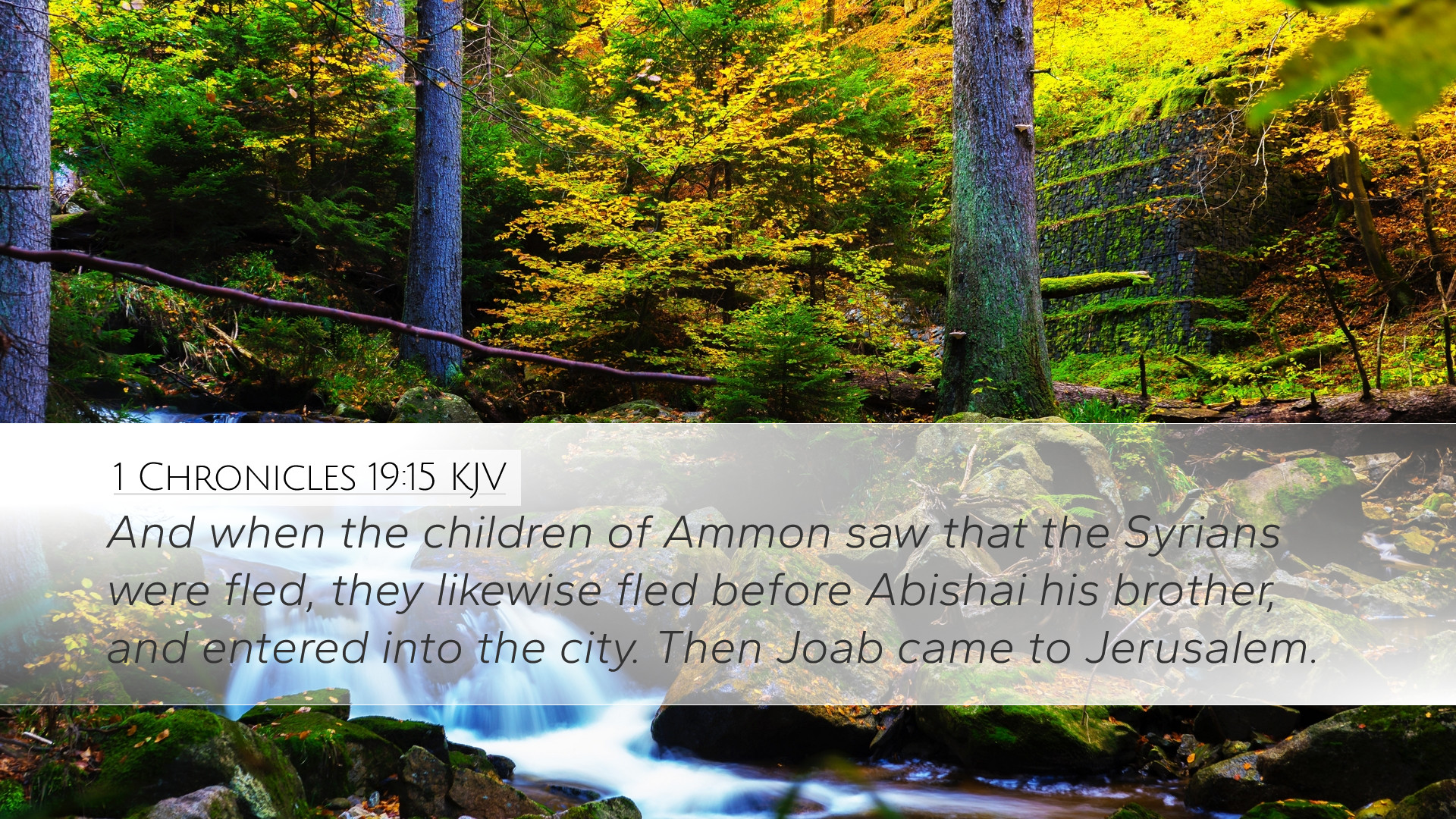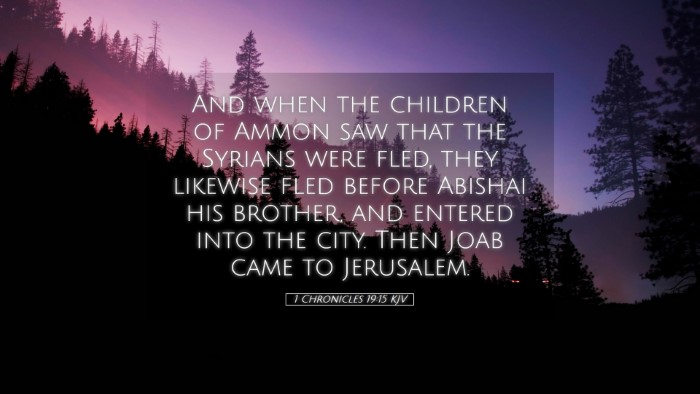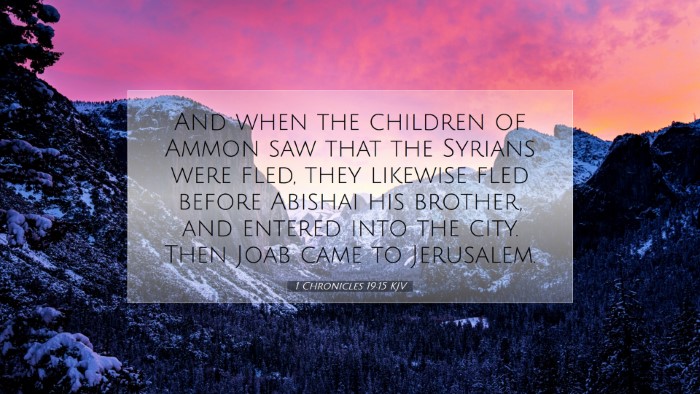Commentary on 1 Chronicles 19:15
The verse in question, 1 Chronicles 19:15, is a pivotal moment in the narrative of Israel's interactions with the Ammonites. This commentary seeks to explore the text through the lens of various public domain sources, aiming to offer insightful and meaningful reflections for pastors, students, theologians, and Bible scholars alike.
Text of 1 Chronicles 19:15
"And when the Ammonites saw that they had made themselves odious to David, Hanun and the princes of the children of Ammon sent a thousand talents of silver to hire them chariots and horsemen out of Mesopotamia, and out of the Syrians of Maachah, and out of Zobah."
Contextual Background
This passage occurs shortly after the death of Nahash, the king of the Ammonites, and David's kind gesture towards Hanun, Nahash's son. The earlier verses set a tone of good intentions, yet they swiftly turn to conflict. According to Matthew Henry's Commentary, the tension lies in the stark contrast between David's offering of kindness and Hanun's deep-seated suspicion and hostility.
Key Themes in the Verse
-
The Nature of Relationships:
The relational dynamics between nations, particularly seen in David's intentions of goodwill contrasted with Hanun's response, showcase the complexities of diplomacy and fallen human nature. Albert Barnes emphasizes how insecurity can lead to misinterpretations of others' intentions, often resulting in hostility.
-
The Role of Power:
Hanun's decision to hire mercenaries from surrounding regions illustrates a desperate attempt to bolster his position against what he perceives as a thrice stronger foe. Adam Clarke elaborates on how alliances were commonplace in the ancient Near East, yet such dependencies also exposed vulnerabilities and led to the greater conflict.
-
Divine Sovereignty:
This episode encapsulates the larger narrative of God’s sovereignty over the affairs of nations. In the backdrop of this conflict, we observe God's overarching plan for Israel, as highlighted by Henry.
Exegetical Insights
1. The Ammonites' Perception of David:
The Ammonites had made themselves “odious” to David, a term that signifies a repulsive image created by their actions. Matthew Henry notes that this reflects not solely their animosity towards David but a deeper spiritual decay that leads them to act irrationally. The word “odious” denotes how their actions would not only repel David but also provoke him.
2. The Sending of Tribute:
In an attempt to rectify their error, Hanun's act of sending tribute could be seen as a double-edged sword—attempting to appease David while simultaneously preparing for conflict. Albert Barnes suggests that this tribute was not merely a gesture of goodwill but a tactical maneuver to form alliances against Israel.
Theological Reflections
In the New Testament understanding of love and reconciliation, David’s initial overture can serve as a paradigm of Christ-like behavior. However, the response of Hanun reveals the stark truth of human sinfulness: even gestures of goodwill can be twisted into hostility. Adam Clarke argues that this serves as a warning for believers regarding the nature of human hearts, which are often inclined towards suspicion and aggression rather than trust and community.
Practical Applications
-
Wariness of Miscommunication:
The events leading to the Ammonites’ hostility teach contemporary leaders and ministers about the importance of clear communication and discerning perceptions in relationships.
-
Seeking Genuine Reconciliation:
Even when conflict arises from good intentions, believers are called to seek genuine reconciliation. It is essential to remember the example of Christ, who came to bring peace amidst hostility.
-
God's Sovereignty in Conflict:
In times of turmoil, it is crucial for the faithful to remember that God is ultimately in control, even when human actions appear chaotic. Understanding God's providence provides comfort and insight during tumultuous times.
Conclusion
1 Chronicles 19:15 encapsulates a crucial turning point in diplomatic relationships within the biblical narrative, illustrating deeper themes of human nature, divine sovereignty, and the challenge of maintaining peace in a fallen world. This examination through the lenses of various historic commentaries reveals layers of meaning that continue to be relevant for readers today.


